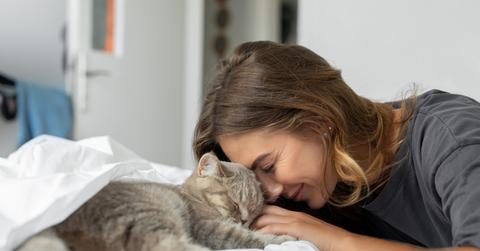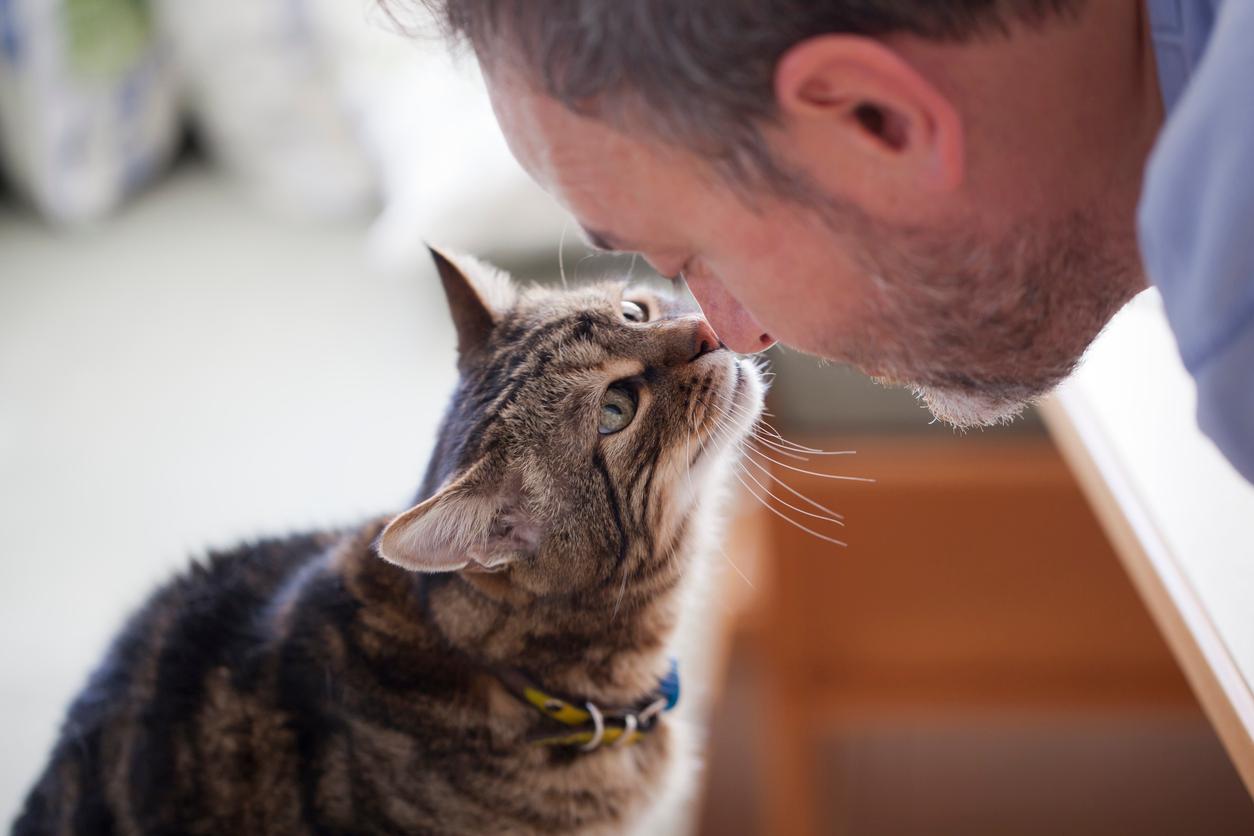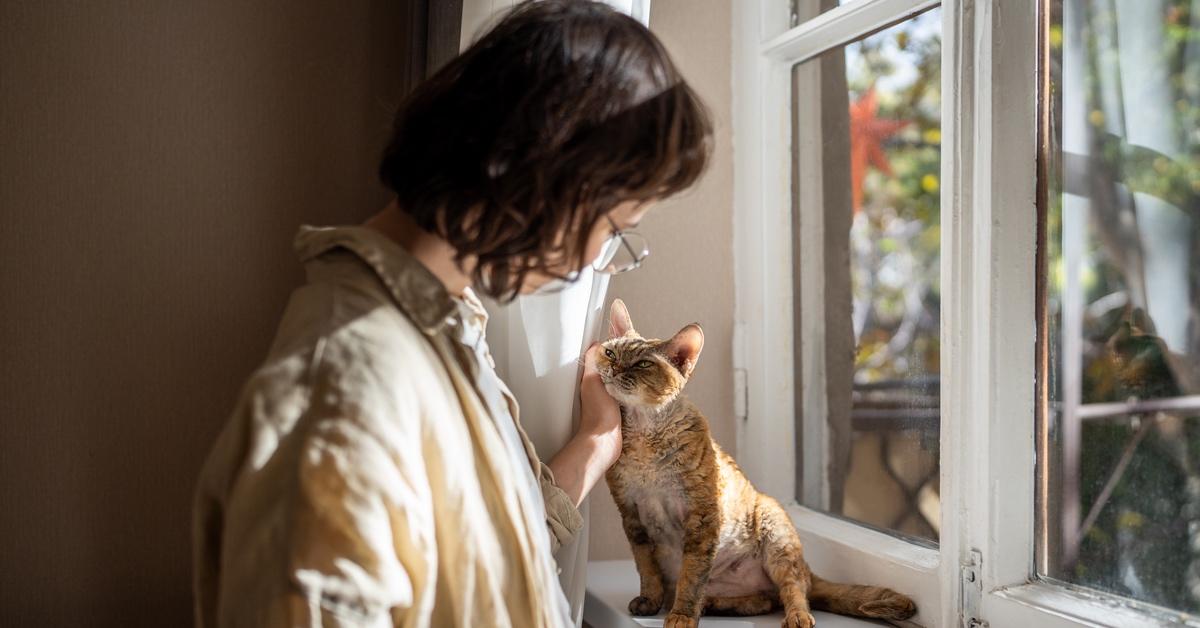Your Feline Provides You Love, but Can Cats Be Service Animals? Here's What the Law Says
A licensed mental health provider is needed to attest to a cat's fitness as an emotional support animal.
Published April 19 2024, 11:33 a.m. ET

Many individuals with mental or physical health diagnoses can attest to the immense benefits a certified service animal brings to their lives. Furthermore, many families for whom emotional support animals, like cats, bring joy and comfort may wonder if their cat can be registered as a service animal.
Let's untangle the legal definitions that distinguish the two labels, if a cat can be considered a service animal, and how to responsibly register your cat as an emotional support animal.

Can cats be service animals?
Unfortunately, only dogs and miniature horses (under a separate provision) are currently eligible to be granted service animal status.
We've got you covered if you're wondering who sets the rule for which animals can earn this designation. The U.S. Department of Justice oversees the Americans with Disabilities Act (ADA), under which service animals are defined and guaranteed certain rights.
According to the American Kennel Club's AKC Reunite microchip and recovery service, while cats can't be considered service animals, they can support their human companions' well-being in other ways.

Here's how to register your cat as an emotional support animal.
Where the ADA's narrow scope defining service animals falters, the broader "emotional support animal" (ESA) label may help countless others. Here are the important steps to consider when designating your cat as an ESA.
According to Embrace Pet Insurance, cat parents must discuss this option with a licensed mental health professional, as a traditional legal certification or registration service from a governing body does not exist for ESAs in the same manner it does for service animals.
As the US Service Animals website confirms, there is no legal requirement to register an ESA cat. However, some families feel additional comfort by utilizing a service like theirs. The only requirement is a letter from a licensed mental health provider.
If your licensed mental health provider agrees that your cat safely and responsibly benefits your well-being. In that case, the provider then authors a letter attesting to the cat's role as your ESA.
Although ESAs aren't legally treated the same as service animals, this doesn't mean they are devoid of protections. Per Purina, your therapist's letter may be provided to landlords or management companies as an exemption to pet policies and fees.

This exemption, per Purina, is protected under the federal Fair Housing Act, which acknowledges an ESA's role in supporting a human through mental health needs and other medical conditions. However, this does not guarantee your ESA cat a spot on an airplane.
While it's a common misconception that a veterinarian arranges the attestation of your ESA cat, it is a responsible idea to discuss with a vet and a behaviorist whether your cat can safely support you in an ESA role.
Finally, trained cats may also serve as therapy animals, according to Purina, visiting medical facilities or mental health therapy sessions to support patients in need.
So while chasms can and often do exist between federal regulations and lived experiences, it's important to remember that service animal policies do not negate your personal experience of mental or physical health or the support your companion cat brings to your life.